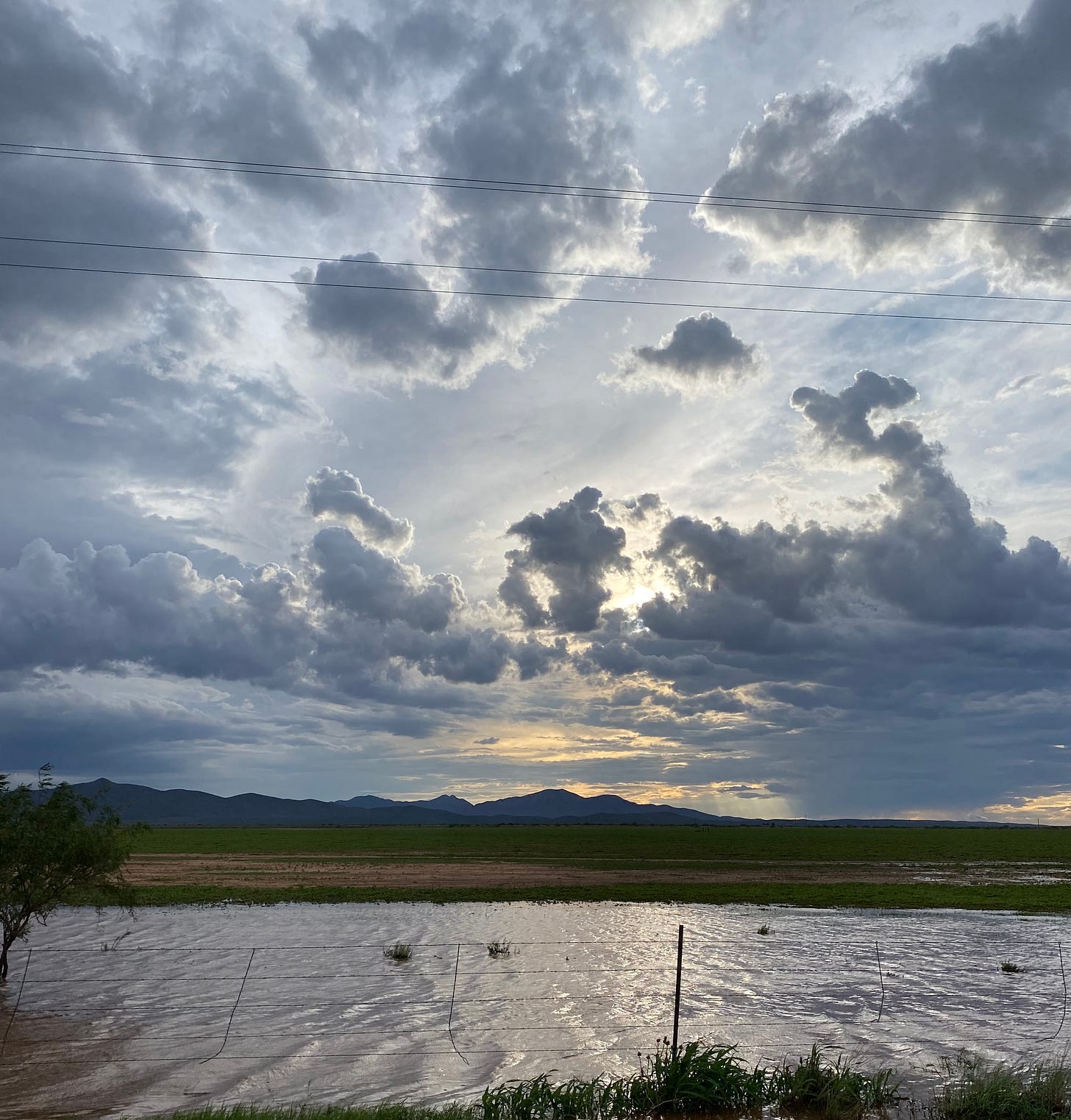Tech can't make it rain.
Prime Future 62: the newsletter for innovators in livestock, meat, and dairy
New to Prime Future? Welcome! Subscribe here to get weekly content in your inbox:
We've had 7 inches of rain in the last month, more than the previous 22 months combined. Pastures are green, stock ponds are full, ranchers are elated.
It’s been a long time since I lived on the farm and felt the angst of drought up close. For the last several years I've lived in the agtech world where it’s all optimization and transformation and precision management of variables.
But all the tech in the world can't solve the biggest problem that has plagued much of the American West in recent months/years: drought.
Sure, sensors can help farmers optimize irrigation or remotely detect water levels in stock tanks and AI models can better forecast market prices based on weather patterns or facilitate better management of financial risk associated with weather. That is all good and well and high value in the right situations, but it doesn’t solve the Mega Problem in a drought: rain.
Tech can solve a lot of problems, but tech can't make it rain.
In agriculture, nature usually gets the last word. Talk to any producer who’s been at it for more than a minute and they have a war story or ten of when nature flexed with an untimely drought or flood, heat wave or blizzard, derecho or tornado, and so on the list goes. (On the flip side, most have been on the receiving end of a market that was positively tipped in their direction by nature’s punk behavior in another part of the world but we don’t usually talk about that.)
No newsflash here, but nature is unpredictable and dramatic with a tendency to be wildly inconvenient. Nature never reads a business plan or considers the market or accounts for global supply & demand conditions. Nature just does what nature does - perhaps that’s even a feature not a bug?
Great management practices & smart tech products allow producers to be more prepared for the unexpected or to handle the unexpected more effectively, but they are ultimately powerless to dictate Nature’s whims. Even in ‘controlled environment’ poultry & swine housing, weather can still wreak havoc on performance and/or costs.
Nature is uncontrollable, yet holds enormous control over production outcomes.
So what? I think this reality has to shape our mental models:
That nature is uncontrollable yet holds enormous control over production outcomes, is all the more reason for producers to control the controllable, to optimize the optimizable, to precisely manage the manageable.
That nature is uncontrollable yet holds enormous control over production outcomes means that there is a level of humility required, especially in agtech. Not everything can be solved by a better algorithm. I think sometimes we forget this.
Tech can solve a lot of problems, but tech can't make it rain.
I’m interested in all things technology, innovation, and every element of the animal protein value chain. I grew up on a farm in Arizona, spent my early career with Elanco, Cargill, & McDonald’s before moving into the world of early stage startups.
I’m currently on the Merck Animal Health Ventures team. Prime Future is where I learn out loud. It represents my personal views only, which are subject to change…’strong convictions, loosely held’.
Thanks for being here,
Janette Barnard




